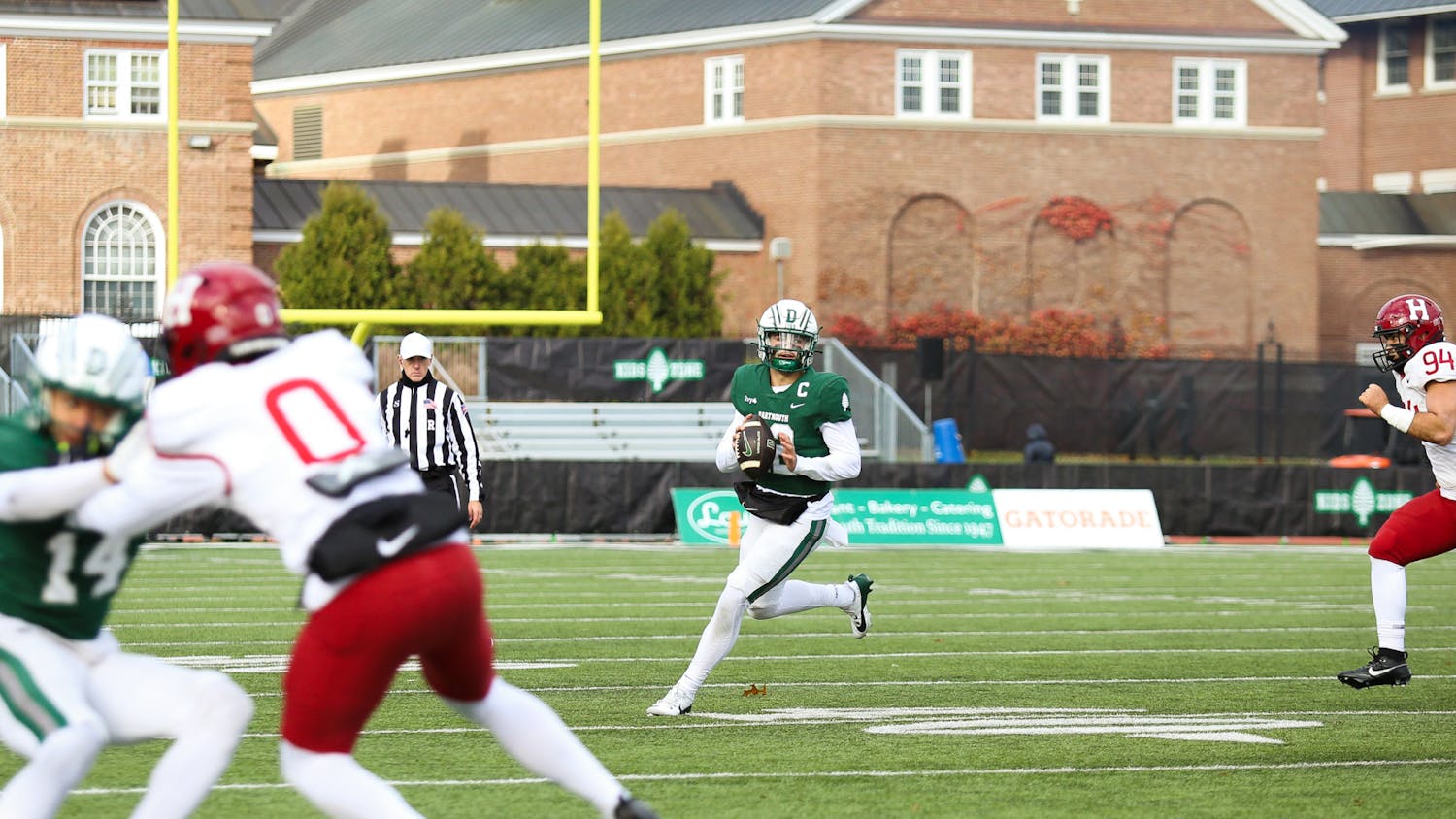At the end of August each year, millions of people across the country gather in living rooms, basements and man-caves for an ever-growing American tradition: the fantasy football draft. To bystanders it appears as nothing more than a waste of time, a “boys will be boys” tradition that subtly flies under the radar. But to draft participants, the men and women who seek a little more out of sports than ESPN updates and feel-good profile stories, it’s a time to immerse themselves in a world more concerned with statistics and points than team loyalty and game outcomes.
While Dartmouth has no official fantasy football league, smaller groups of students organize through fraternity houses, student organizations and friend groups to create their own competitions. At Kappa Kappa Kappa fraternity, for example, members of the house gather during the NFL preseason for a brothers-only draft and fantasy tournament, Joon Baak ’15, member of Tri-Kap, said. Brothers also email invites to house alumni, he said.
The draft traditionally occurs in August. The fantasy draft began more than 50 years ago, according to an ESPN report, when the first fantasy league, the Greater Oakland Professional Pigskin Prognosticators, held their first draft.
While some drafts have since moved completely online, many traditionalists still prefer to congregate in homes and bars for the three-to-four hour long selection process, according to Ryan Strain ’16, a self proclaimed fantasy draft enthusiast.
The basic gist of the process is that a person acquires a roster of players, sets a lineup each week during the regular football season and watches as the fantasy points accumulate. Each achievement in the game — including touchdowns, field goals, yards gained, interceptions, sacks, points allowed, turnovers and much more — is assigned a point value.
The better a player performs in a given game, the more individual points he gains, contributing to his overall total for the week. An added bonus is that many leagues compete for a cash pot.
Jackson Dean ’16 began playing fantasy football during his freshman year of high school and was instantly addicted. In those days, he spent roughly 10 hours a week building and adjusting his team, often times sacrificing sleep and homework to get it right. During his junior year, Dean said, his parents gave him a choice of playing varsity basketball or fantasy football. After much consideration, he went with basketball. Dean attributes his love of sport and knack for following statistics to his admiration for the game.
“I just love it,” he said. “It’s a great way to follow football and people and teams that you’re not very interested in.”
Dean, like many other self proclaimed fanatics, enjoys the strategy behind building and adjusting a team week-by-week. After the draft, he says, the game is all about picking up players that no one has and trading with other league members based on need. He focuses on player injuries and looks for trends in performance. For example, he’d pick up a free-agent wide receiver that has played particularly well over the course of consecutive weeks. He also does cost-benefit analysis, he said, when trading for players.
“You have to do the analysis to determine who is worth trading and who is worth giving up,” he said. “It’s all about how much specific players are worth to you and your specific needs at a specific time.”
Fantasy leagues have blossomed into a multi-billion dollar industry, with many companies providing expert advice and information to some of the world’s most avid sports fans, according to Forbes Magazine. The Fantasy Sports Trade Association estimated in 2013 that roughly 32 million Americans spend $15 billion playing per year. $11 billion of that spending is on fantasy football alone.
Tim McCullough, the managing editor at RotoExperts, a provider of fantasy sports content, said that participating in the activity enhances the enjoyment of professional sports in general.
McCullough said he finds that the largest demographic participating in fantasy sports are men ages 25-54. Women, however, have participated in fantasy sports, especially football, more and more in recent years, he added.
One of the most attractive things about fantasy sports, Strain said, is that no one has direct control over the outcomes beyond a certain point. Although there are strategies to implement, there is a certain degree of lack of control. There’s no way of knowing how well someone is going to play, he said.



